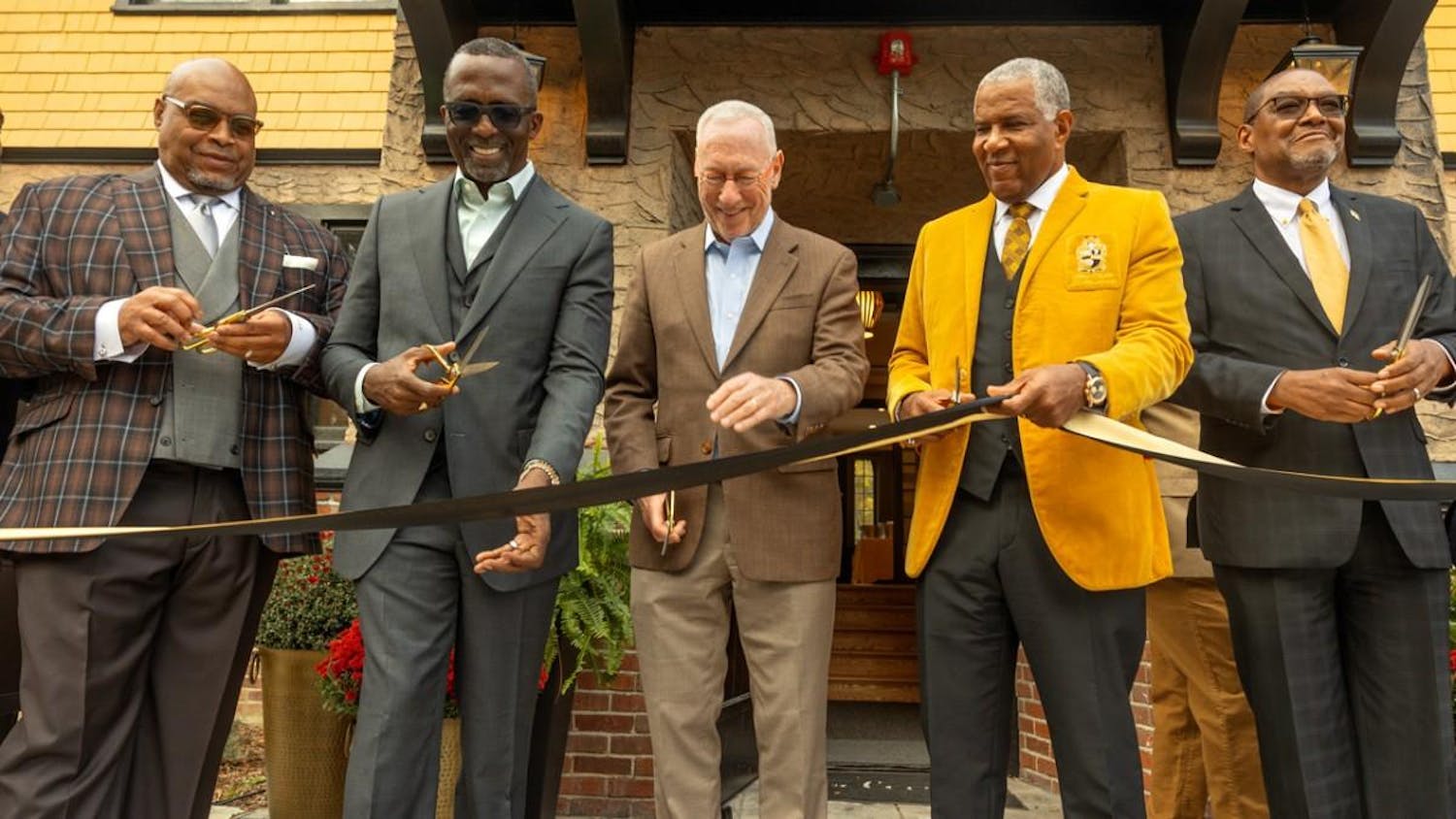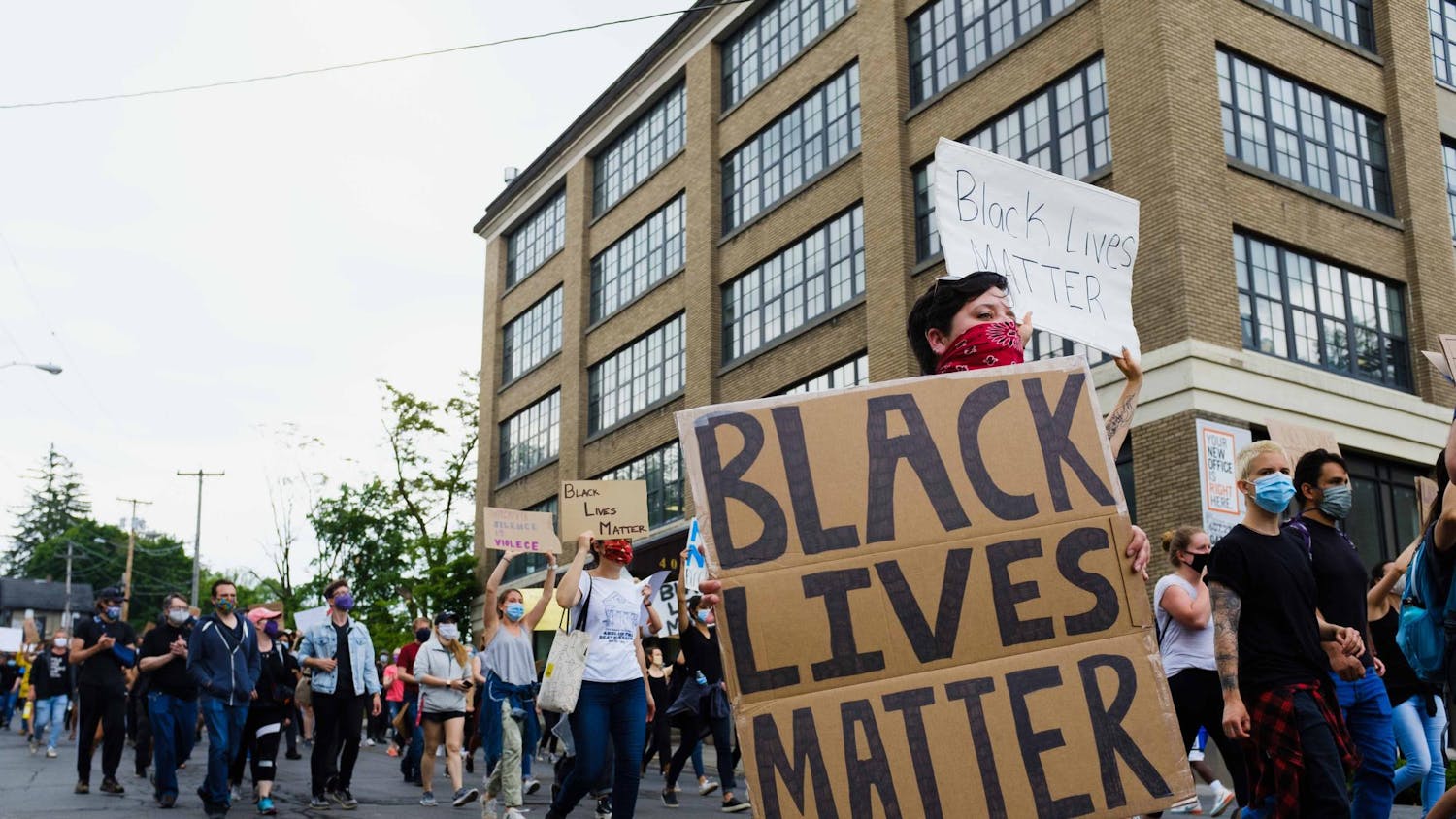The Common Council unanimously passed a policy on Wednesday, Sept. 20 sanctioning a camping location within the local homeless encampment known as the “Jungle” in response to the steady increase of homeless individuals in the City of Ithaca in recent years, leaving some nearby communities both dissatisfied and wary.
The one-year pilot policy aims to relocate homeless encampments out of main city property and instead into a newly established camping site located on a 28.83 acre plot of land near the Walmart and Lowe’s, approximately 680 feet from Nate’s Floral Estates, a mobile home park. This authorized camping site has been used by the homeless for years, making up part of what is known as the “Jungle.”
During the winter of 2022-2023, a record number of homeless individuals sought emergency shelter to escape the frigid temperatures, according to the meeting’s agenda. The agenda also reported multiple instances of as many as 240 unhoused individuals seeking shelter in a single night.
The vast homeless population has led to the formation of a growing number of unauthorized encampments on city property. Many residents share a number of concerns surrounding the unauthorized encampments, including a potential spread of diseases, an increase in criminal activity and sanitation concerns.
Fourth Ward Alderperson Tiffany Kumar ’24 (D) told The Sun that in order to facilitate the movement of encampments from city property and into the proposed campsite, the policy uses an incentivization centered approach, providing amenities such as toilets, showers, cooling and warming stations, as well as needle exchange.
“I think there are plans to move [in] showers, charging stations — something that I've been very adamant about — as well as having a cooling or warming station,” Kumar said.
Though the passed homeless encampment policy aims to reduce unauthorized homeless encampments within the rest of Ithaca, the policy’s intended goal of pushing more homeless individuals into the local encampment has sparked uneasiness with the community surrounding it.
Crystal Weiner, an employee Nate’s Floral Estates, described the negative impact that the proximity of the encampment has had on the community in an interview with The Sun.
“We've had to deal with homeless people trespassing, coming onto the private property of the mobile home park [and] stealing stuff right off their porches,” Weiner said. “One of the homeless people [stole] fuel from one of our tenants.”
Weiner explained that the proximity of the authorized homeless encampments have made some residents, particularly senior citizens, feel unsafe.
“We have a lot of tenants that are seniors, because this is a 55 and up mobile home park, and we have tenants in here who aren't able to defend themselves,” Weiner said.
The local branches of Walmart and Lowe’s declined to comment.
Acting Chief of Police Ted Schwartz described additional impacts that the authorized homeless encampments have had on both the community and local businesses in an interview with The Sun.
“I know a lot of the retail stores that are adjacent to the “Jungle” are experiencing a lot of theft — disposal of hypodermic needles in the grass or on the ground,” Schwartz said. “The smoke [from the Jungle] impacts the nearby residents [when] someone's burning tires or garbage, for example. That toxic smoke blowing into other people's houses that are nearby — we get those complaints sometimes.”
Though the new homeless encampment policy will push more homeless individuals into the encampment by making it unauthorized to camp elsewhere in the city, Schwartz said it is not the city’s intention to worsen the negative consequences for the nearby communities.
“The city is trying to reduce the areas where they're going to allow people to camp or set up a shelter,” Schwartz said.
Both Kumar and Schwartz stated that the newly passed policy is not a final solution, but rather a step towards alleviating the ill effects of homelessness, with Kumar saying the policy is just one in a number of steps to manage the growth of the Ithaca homeless population.
“I think the only thing that can reduce the homeless population, that can truly address this issue, is to keep people in their houses and build housing for people, and make sure that people are afforded the human right of shelter and housing,” Kumar said. “It's no secret that this is being seen as a Band-Aid solution.”
Schwartz explained that in order to further solve Ithaca’s homeless issue, future policies could address the mental and health issues associated with homelessness.
“I anticipate that there's going to be follow on policies that are going to also address some of the adjacent underlying issues,” Schwartz said. “Some of these people may need mental health services or medical services, or addiction services, or any combination of those or other social services.”
Dalton Mullins ’27 is a Sun contributor and can be reached at ddm88@cornell.edu.











